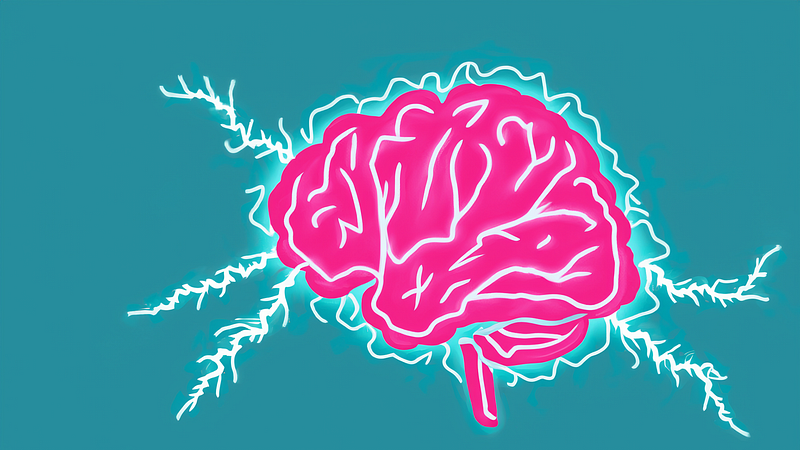The 1 most important key to quitting alcohol as an ADHD adult
I have yet to see much research on how ADHD is related to alcohol abuse, but if you ask me, it has to be a massive risk factor.
I’m speaking from personal experience here.
I believe my biological inability to sit still or find enjoyment in a lot of the pursuits that normal society tells me I should like — vegging on the couch all night watching TV, for example — was one of the root causes of my 15-year alcohol problem.

I wrote about this a fair bit early in my quit alcohol quest, but I was reminded of it when reader Matt Turner asked the following question on a recent post I wrote about how quickly the brain recovers from alcohol abuse:
“Hi James just wondered if you had any specific ADHD advice? I personally find alcohol to be one of the only things that helps me lower the volume of my monkey brain in the evenings. Did you have any particular strategies to replace this?”
I do have some advice, but it’s probably going to sound pretty counterintuitive.
Allow me to explain.
Coping mechanisms
My wife is a much more chill person than me. It’s one of the reasons we work as a couple.
As a result, she finds nothing more relaxing than plopping onto the couch in her free time and sitting there for hours watching TV.
My brain is the opposite.
If I’m sitting too long doing something passive like watching something, I get restless.
I get agitated.
But for the longest time, I would force myself to do it because that’s what was considered “normal”.
There’s nothing normal society likes to push more than the stereotypical image of relaxing.
Relaaaax. Chill out. Make sure you don’t “burn out”. Self-care.
I’m sure that works for some people.
But I long ago accepted I’m not “normal”.
So how could I act normal while my monkey brain — as reader Matt put it — was hopping around in my skull?
How could I sit still long enough to “enjoy” multiple episodes of some TV show and pretend I liked it?
Alcohol.
That was it.
It was only when I accepted myself for who I was — and was confident enough to tell others that I’d need to manage my life in an unconventional way — that I was able to quit.
That’s when I discovered the secret to being sober as an ADHD person.

The secret
I discovered that the key wasn’t so much to “turn down the volume” but rather to let my brain and body run.
This can be uncomfortable both for you and the people you love — at first.
But if people actually do love you, they’ll accept you for who you are.
This was one thing I needed to be upfront with my wife about when I told her initially that I felt I had a problem with alcohol.
At first, I felt like there was something wrong with me for not conforming to society’s typical ideas about what “downtime” and “relaxing” should look like.
That is, doing f**k-all and sitting around in front of the tube.
So I attempted to fit my square-peg mind into a round hole and sit in front of the TV at night.
The only way I could accomplish this without a high level of discomfort was to drink alcohol.
Here’s the thing though: It’s actually OK to stay busy!
And it’s OK to tell people that you need to do things a certain way to stay on track.
I’ve gone back to this well so many times, but it’s because nobody has ever described my own mind back to me in a more accurate way.
Here’s what musician James Taylor said about the way his mind works when he was discussing his own addiction problems on the WTF podcast back in 2015:
“The way I felt about it was that, the way I’ve come to feel about it, is that I was probably, like, rowing some Viking boat across the seas in a former life.
“And when you sit me down in a sort of suburban context, my nervous system and my body and my entire wiring is just not ready for it.
“I’m ready for something else. I’m ready for war, I’m ready to battle the elements or to raid villages or defend villages.
“But I’m not comfortable on the couch watching baseball.”
Taylor’s solution was to get really embrace fitness and work.
This worked for me as well.
Rather than starting to drink in the evening to tolerate the typical inertia, I started going to the gym at night. That burned some of my restless energy.
Mind-wise, I also started writing here. A lot.
Rather than pushing through another Netflix session, I used my idle time to get my endless thoughts out of my brain and onto the screen — and start building a business on the side.
Both those activities gave me goals, structure, and something to compete for.
Let it go
For ADHD people like myself and, I assume, Matt … we just aren’t built to live in modern, sedentary times.
We’re uncomfortable if we’re not in motion.
And that’s OK!
So my advice to anyone trying to navigate life as an ADHD sober person is this: the key is not only to always have something to do, but also to accept yourself for who you are.
Find out what your version of a Viking boat is.
And then get rowing!
Friends, thanks so much for reading! Have you experienced anything like what I’ve described here? Let me know in the comments!
My top 5 trending stories:
- Star singer Adele revealed a MASSIVE challenge after you quit alcohol
- The real truth of making big money writing online (they’re lying to you)
- The 1 main reason most people fail to make big money writing online
- 3 super healthy habits that keep Victoria Beckham fit as hell at 49
- Why I’m writing like crazy now to bank big later (money update)




